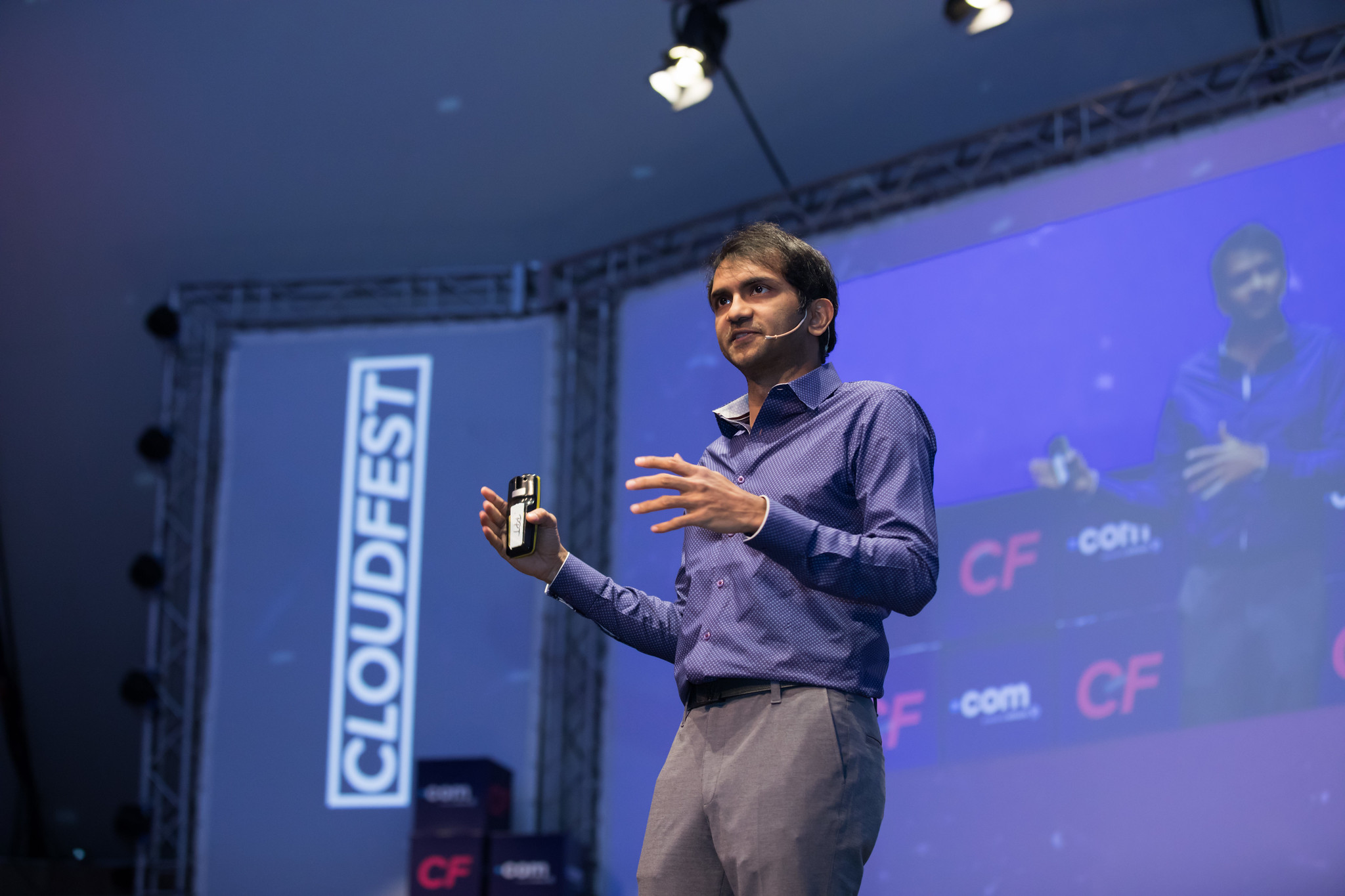What is the strength and weakness of the hosting market

Users are changing, but hosting and cloud service providers are not. This is the main idea of the report of the Indian entrepreneur and billionaire Bhavin Turakhia, with which he spoke at the international exhibition of cloud services and hosting CloudFest.
We were there too, we talked a lot with providers and vendors, and some of the thoughts from Turakhia’s speech were considered consonant with the general mood. Especially for the Russian market, we translated his report.
About the speaker . In 1997, at 17, Bhavin Turakhia and his brother founded the hosting company Directi. In 2014, Endurance International Group bought Directi for $ 160 million. Now Turakhia is developing the Flock messenger and other services less well-known in Russia: Radix, CodeChef, Ringo, Media.net and Zeta. He calls himself a startup evangelist and serial entrepreneur.
At CloudFest, Thurakhia presented a SWOT analysis of the hosting market and the clouds. He spoke about the strengths and weaknesses of the industry, opportunities and threats. Here we give a transcript of his speech with some abbreviations.
The full recording of the performance can be viewed on YouTube , and a short squeeze in English can be found in the CloudFest report .

Bhavin Turakhia, photo CloudFest
Strength: huge audience
Just imagine, people present at CloudFest control 90% of the world’s Internet. Now more than 200 million domain names and sites are registered (approx. Ed. - already 300 million), 60 million of them were created in just one year! Most owners of these sites directly or indirectly work through the companies gathered here. This is the incredible power of us all!
Opportunity: access to new businesses
As soon as an entrepreneur has an idea, he chooses a domain, launches a website, buys a hosting - takes care of how his business will be presented on the Internet. He goes to the provider before hiring the first employee and registering the brand. He changes the name of the company, focusing on free domains. Each of us in one way or another affects the way of his business. We are literally at the bottom of every business idea.
Google, Microsoft or Amazon didn’t immediately become huge, they started with Sergey and Larry, Paul and Bill, etc. Everything is based on the idea of one or two people, and we, hosting or cloud providers, can participate in its growth from a doll to the butterfly, from a small company to a corporation with 500, 5,000 and 50,000 people. We can start with an entrepreneur and help him: in marketing, collecting leads, getting clients, as well as tools for communication and collaboration.
Threat: users have changed
Over the past ten years, consumer behavior has changed dramatically: the baby boom generation was replaced by millennials and the Z generation. Smartphones, unmanned vehicles, artificial intelligence, and much more that dramatically changed behavior patterns appeared. I will talk about several important trends for the industry. Now users:
Lease, not buy
If before it was important to own things, now we just rent them. Moreover, we do not rent an asset, but the ability to use it for some time is to take at least Uber or Airbnb. From the ownership model, we moved on to the access model.
A few years ago at this conference we discussed hosting, selling servers, racks, or a place in a data center. Today we are talking about leasing computing power in the cloud. World Hosting Day (WHD) has become a cloud festival - CloudFest.
They want a convenient interface
There was a time when users expected only functionality from the interface: I need a button with which I can solve my problem. Now the request has changed.
The software should not only be useful, but also beautiful and elegant. He must have a soul! The clumsy gray rectangles are out of fashion. Now users expect UX and interfaces to be elegant, comfortable and fun.
Choose for yourself
Previously, when searching for an electrician, a person consulted with a neighbor, he chose a restaurant on the recommendation of friends, and planned a vacation through a travel agency. All this was before the advent of Yelp, TripAdvisor, UberEATS and other recommendation services. Now users make decisions by conducting their own research.
This also applies to our industry. There was a time when buying software did not go without talking to someone who could say: “Hey, if you need CRM, use this; and take this for personnel management. ” Users no longer need consultants, they find answers through G2 Crowd, Capterra or even Twitter.
Therefore, content marketing is developing now. His task is to tell the client in what situations the company's product may be useful to him, and thus help in the search.
Seeking quick solutions
Previously, companies developed programs themselves or installed vendor software and customized it for themselves, attracting IT professionals. But the time of giant corporations in which their own development is possible has passed. Now everything is built around small companies or small teams within large organizations. They can find a CRM system, a task manager, tools for communication and collaboration in a minute. Quickly install them and start using.
If you look at our industry, users no longer pay thousands of dollars to web designers for website development. They can create and install the site themselves, as well as do much more. This trend continues to develop and influence us.
Weak side: providers do not change
Not only users have changed, but also competition.
Two decades ago, when I was part of this industry and launched a hosting company, we all sold the same product (shared hosting, VPS or dedicated servers) in the same way (three or four tariff plans with X MB of disk space, X MB of RAM, X email accounts). This continues now, for 20 years we all sell the same thing!

Bhavin Turakhia, photo CloudFest
There was no innovation in our proposals, there was no creativity. We competed only in price and discounts for additional services (for example, domains), and providers differed in the language of support and the physical location of the servers.
But everything has changed dramatically. Just three years ago, 1% of sites in the US were created using Wix (this is only one of the companies that I think is building a great product). In 2018, this number already reaches 6%. Six-fold growth in only one market!
This is another confirmation that users now prefer turnkey solutions, and the interface is becoming extremely important. “My cPanel is against yours, or my hosting package is against yours” - this does not work anymore. Now the battle for the client is at the level of user experience. The one who provides the best interface, the best service and the best features wins.
Remember
The market has incredible power: access to a huge audience and the beginning of every new business. Trust providers. But users and competition have changed, and we continue to sell the same products. We are really no different! For me, this is a problem that needs to be solved in order to monetize the opportunities that exist.
After the speech, Turakhia gave a short interview to Christian Dawson of i2Coalition's, in which several tips were given to entrepreneurs. They are not very original, but it would be dishonest not to bring them here.
- Focus on values, not money.
- There is nothing more important than a team! Turakhia still spends 30% of its time searching for employees.
- Failure is just a way to understand the fallacy of hypotheses and choose a new path for movement. Try again and again. Never give up!
